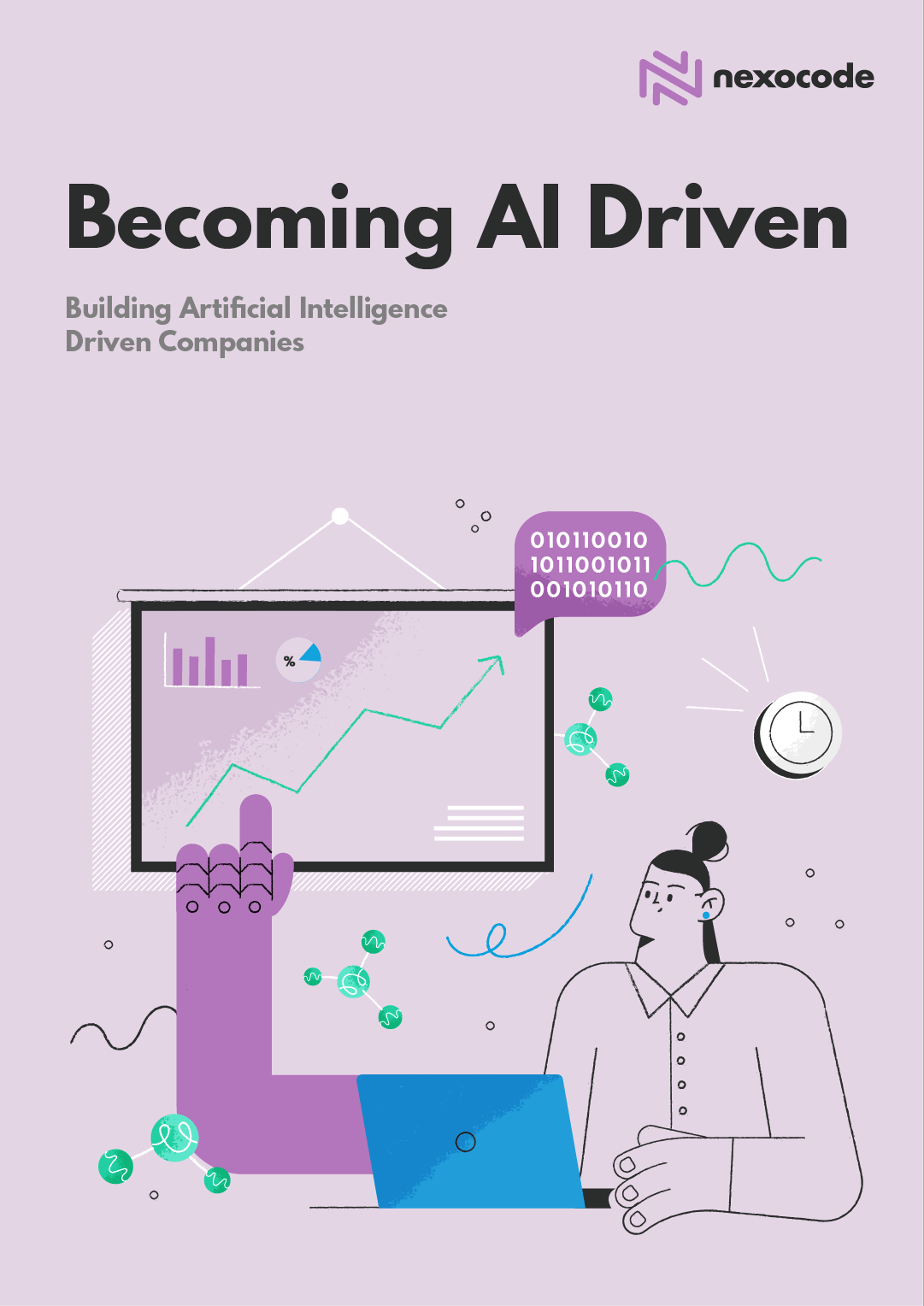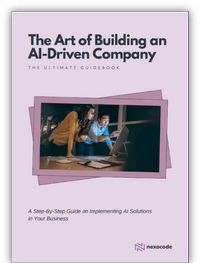In today’s data-driven world, businesses are collecting more data than ever before. However, many struggle to harness the full power of their data and use it to drive business value. That is where data strategy consulting comes in.
A data strategy consultant can assist businesses with developing a comprehensive data strategy that aligns with their goals and objectives, and enables them to make smarter,
data-driven decisions.
In this article, we will explore the services offered by data strategy and engineering consulting firms, as well as why working with a data strategy consultant might well be the smartest approach to harnessing your data’s power. We will also take a closer look at the data strategy process and the benefits it can offer to businesses of all sizes and industries.
TL;DR
• Data strategy consulting helps businesses develop and implement effective data strategies, enabling smarter decisions and maximizing data assets.
• Services offered by data strategy consultants include data strategy workshops, data-driven innovation, data science and big data services, data architecture design, and data literacy training.
• Benefits of working with a data strategy consultant include accelerated data initiatives, optimized data management processes, better decision-making, risk mitigation, and maintaining a competitive edge.
• The data strategy consulting process typically involves data assessment, goal setting, data governance, data analytics and AI implementation, data architecture design, implementation planning, strategy execution, and ongoing evaluation.
• When hiring a data strategy consulting firm, consider their experience, expertise, approach, familiarity with emerging trends, and pricing structure.
• Unlock the power of your data with nexocode’s data engineering consultants –
contact us today for expert assistance in developing and implementing a winning data strategy.
Maximizing Your Data’s ROI
In an increasingly competitive business landscape, it is crucial to optimize your organization’s return on investment (ROI) from data. Data strategy consulting firms play a pivotal role in maximizing the value derived by businesses from their data by developing targeted strategies and providing actionable insights.
Through the effective use of big data management consulting services, companies can give themselves a competitive edge, enhance the customer experiences they provide, and uncover new, untapped revenue streams. As a result, organizations that partner with experienced data strategy consultants can ultimately realize tangible, financial benefits.
What is Data Strategy Consulting?
Data strategy consulting revolves around advising organizations about how to effectively manage, process, and utilize their data to achieve strategic business goals. Data strategy consultants possess expertise in various aspects of data management, including data governance, data analytics, data science, cloud computing, and artificial intelligence (AI).
Given their highly specialized skill sets, these consultants are able to provide overarching data strategy services that enable organizations to fully leverage their data assets and make more well-informed decisions based on the available information rather than intuition alone.
From a business perspective, data strategy consulting provides a range of benefits like greater efficiency, cost savings, and improved customer service. Further advantages are expanded upon later in a dedicated section of this article.
Services Offered by Data Strategy Consultants
Data strategy consultants offer a wide range of solutions tailored to the unique needs of each organization. Some examples of such services are covered below.
Data Strategy Workshops
A typical consultancy starts by assessing your organization’s data landscape: evaluating data quality, completeness, and relevancy; examining current data sources and data storage; determining the types of data you have, including structured and unstructured data; and identifying strengths and weaknesses, as well as any potential risks.
A comprehensive analysis conducted during a workshop like this lays a solid foundation for developing a targeted data strategy that addresses your organization’s unique needs.
Data-Driven Innovation – Identifying Opportunities for Business Intelligence, Machine Learning, and AI
Data strategy consultants can assist organizations with evaluating existing data, identifying gaps, and then determining the most effective advanced analytics, machine learning, and AI tools and techniques to extract actionable insights. Through such exploration, businesses improve their ability to capitalize on data-driven innovations and gain a competitive edge.
Data Science and Big Data Services
Consultants’ expertise may be sought for developing predictive models, carrying out statistical analyses, and implementing advanced analytics solutions. Data science and big data analytics services like these enable businesses to extract maximum value and draw meaningful conclusions from their data assets.
Data Architecture Design and Development
Effective data architecture is a key aspect of managing and processing data efficiently. Data strategy consultants work with organizations to design and develop robust data architectures that support their specific needs and allow a seamless flow of data throughout, thanks to the establishment of an appropriate data model.
Data Literacy Training and Education
Empowering employees with the requisite knowledge and skills to understand and use data is vital for driving data-driven decision-making. Data strategy consultants provide data literacy training and education so that organizations can develop data-savvy workforces.
Through these training programs, employees gain a better understanding of data concepts, tools, and techniques, enabling them to effectively utilize data in their day-to-day tasks.
Why You Need a Data Strategy Consultant
Working with a data strategy consultant has numerous advantages. These professionals possess the expertise to navigate the complex data landscape and identify the most effective solutions for your organization.
Partnering with a data strategy consultant helps you to:
- Accelerate your data-driven initiatives, reducing time-to-value.
- Optimize your data management processes, enhancing efficiency and reducing costs.
- Make more informed decisions based on accurate and reliable data.
- Mitigate data privacy, security, and compliance risks in order to protect your organization.
- Drive innovation and maintain a competitive edge – staying ahead in your industry.
The Data Strategy Consulting Process
When working with a data strategy consultant, organizations will only fully benefit if they first understand the current state of their data. Once the data has been audited, the consultant can then develop an exhaustive plan of action for optimal data management and utilization going forward.
This plan, the
data strategy framework, usually involves identifying the most
valuable data to the organization, developing a system for collecting and processing it, and highlighting actionable insights to achieve business objectives. The entire data strategy consulting process typically consists of several stages, now described in more detail.
Data Assessment
Data strategy consultants start by assessing your organization’s data landscape, and evaluating data quality, completeness, and relevancy to identify strengths and weaknesses. This thorough analysis provides a solid foundation for developing a targeted data strategy that addresses your organization’s unique needs.
Goal Setting and Identifying Data Use Cases
In this stage, data strategy consultants work with stakeholders to define data-related goals and objectives, and identify specific use cases where data can add value to the organization. This collaborative process contributes to aligning the data strategy with the organization’s overall strategic vision and addresses its most pressing needs.
Data Governance
Data governance is one of the base
data strategy components, and it is a collection of policies, processes, metrics, and standards are stipulated to guarantee data quality, privacy, and security. Data strategy consultants are employed by organizations to develop these robust data governance frameworks in support of their data initiatives.
A well-defined data governance strategy has the potential upsides of minimizing risks, enhancing compliance, and maintaining data as a valuable asset for the organization.
Data Analytics, Data Science, and AI
Businesses might decide to call upon data strategy consultants to implement advanced analytics, data science, and AI solutions that drive insights and enhance decision-making organization-wide.
They assess the organization’s analytics capabilities, recommend appropriate tools and technologies, and assist in the deployment of data-driven solutions. Through these efforts, organizations can unlock their full data capabilities and make smarter, more informed decisions.
Data Architecture
The consultation process concerning how an organization manages its data covers all aspects, from how it is collected through the ways in which it is transformed and distributed to how data is consumed. This entails an analysis of the organization’s data requirements and the implementation of the necessary infrastructure to support data processing and analysis.
Implementation Planning
Data strategy consultants establish detailed blueprints outlining the critical steps, resources, and timelines for executing the data strategy. This results in a smooth and efficient implementation process, minimizing potential roadblocks and maximizing the chances of success.
Data Strategy Execution and Monitoring
Once the data strategy is in place, data strategy consultants assist with implementing the plan and checking its progress. This includes tracking key performance indicators (KPIs) and adjusting the strategy as needed to achieve desired business outcomes.
Regular monitoring and evaluation allow organizations to stay on track and continuously optimize their data strategies.
Data Strategy in Action – Evaluation and Optimization
Data strategy consultants regularly assess the success of the data strategy, making refinements and improvements as needed to facilitate continuous improvement and alignment with organizational objectives.
Through ongoing evaluation and optimization, organizations can verify that their data strategies remain effective and relevant in the face of evolving business needs and market conditions.
Benefits of Data Strategy Consulting
Engaging the services of data strategy consultants can provide organizations with numerous benefits, including:
- Enhanced decision-making – leveraging data-driven insights allows organizations to make more well-informed decisions that drive growth and success.
- Improved efficiency – data strategy consultants can streamline data management processes, reducing costs and enhancing productivity.
- Greater competitive advantage – a well-defined data strategy enables organizations to capitalize on their data assets and maintain a competitive edge in the market. They will help you prepare for future implementations of AI and ML solutions at scale.
- Compliance and risk mitigation – data strategy consultants can navigate organizations through the complex regulatory landscape and mitigate risks associated with data privacy and security.
- Innovation and growth – identifying opportunities for innovation
enables organizations to become data-driven, unlock new revenue streams, and fuel growth.
Questions to Ask When Hiring Data Strategy Consultants
When selecting a data strategy consulting firm, it is certainly worth considering asking the following questions:
- What is the firm’s experience and expertise in data strategy consulting?
- Can the firm provide case studies or references from previous clients with similar needs?
- What is the firm’s approach to data strategy development and implementation? Can the company provide development and data engineering solutions as well?
- How does the firm stay current with emerging trends and technologies in the data space? Does the company have experience with AI and other novel applications of data?
- What is the firm’s pricing structure, and how does it compare to other data strategy consulting firms?
Data Strategy Consulting: The Secret Weapon for Smarter Business Decisions
To summarize, data strategy consulting is a valuable service that allows organizations to leverage the power of data for competitive advantage. With the input of a knowledgeable data strategy consultant, organizations can develop and implement effective strategies that enable them to make smarter decisions and maximize their data assets.
Investment in a sound data strategy allows organizations to drive greater efficiency, reduce costs, and enhance decision-making. It also facilitates compliance with applicable regulations and mitigation of risks associated with data privacy and security.
Ultimately, data strategy consulting can provide organizations with the tools they need to achieve success in today’s data-driven world. If you need a data strategy consultant to unlock the power of your data, look no further than nexocode –
our experts are here to help.









